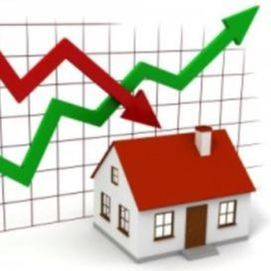SPONSORED CONTENT

Julie Gardner, referred to as, “the pulse of Piedmont,” has been writing The New Perspective for 11 years.
A New Perspective | The adventures and personal stories of one Realtor’s battle in the trenches of the highly-competitive Bay Area Real Estate market, seeking to humanize and share the ups, the downs, the pitfalls, the evolution, and the joy of home ownership!
WHAT’S NEW?
The Tipping Point
October 12, 2018 – Volume 505
The Fall market has provided a slew of great listings and savvy Buyers have jumped in to take advantage of this last final push before the holidays are truly upon us.
In Piedmont, we saw more houses on the market in a single week in September (16!), than we did in any given week all last spring, and true to form, if they were priced correctly, they found a qualified Buyer in quick time. (“IF” being the operative word.)
But there have also been unexpected price reductions on homes that have been slower to trade (even here in Piedmont) which left many Buyers and Seller wondering, “Are we at the tipping point?”
Or put another way, “is the market finally correcting?”
With interest rates on the rise, coupled with an escalating marketplace that’s virtually unsustainable, not to mention whispers of a downturn among bloggers and experts alike, we may finally see the correction people have been anticipating for the last few years. (Historically, real estate tends to correct every seven years or so and we’re now on year 11.)
OR . . . we may not.
 Opposing arguments to the question of a market correction would point to higher-than- average Bay Area incomes, continued job growth, a positive economy as a whole, robust consumer confidence, several strong IPOs on the horizon, sunshine year-round, and too little inventory to meet current demand. Additionally, the fall market tends to experience a seasonal adjustment, regardless of what else is going on. In short, economic indicators might just as easily suggest continued expansion, rather than contraction.
Opposing arguments to the question of a market correction would point to higher-than- average Bay Area incomes, continued job growth, a positive economy as a whole, robust consumer confidence, several strong IPOs on the horizon, sunshine year-round, and too little inventory to meet current demand. Additionally, the fall market tends to experience a seasonal adjustment, regardless of what else is going on. In short, economic indicators might just as easily suggest continued expansion, rather than contraction.
Hmmm . . . so when is it best to proceed? The answer is . . . when it makes sense for you.
Opposing arguments to the question of a market correction would point to higher-than- average Bay Area incomes, continued job growth, a positive economy as a whole, robust consumer confidence, several strong IPOs on the horizon, sunshine year-round, and too little inventory to meet current demand. Additionally, the fall market tends to experience a seasonal adjustment, regardless of what else is going on. In short, economic indicators might just as easily suggest continued expansion, rather than contraction.
Hmmm . . . so when is it best to proceed?
The answer is . . . when it makes sense for you.
For those of us who’ve weathered both UP and down markets, we take the long view. Life doesn’t necessarily wait for the best timing before it throws a curve ball our way: babies arrive, kids graduate, new jobs force a transfer, divorce presents an unexpected life change, retirement looms, aging parents move in, and so it goes. . .
If you are buying and selling in the same market, chances are that any expected (or unexpected) price fluctuations are relative, so it matters little if the market is UP, down, or somewhere in-between. It’s when we wait it out, or move from one marketplace to another that the concept and practice of “outsmarting the marketplace” becomes far trickier to navigate.
Earlier this week, I met a prospective Buyer moving from Connecticut and while she’s in an enviable position – by anybody’s standards – prices in her neighborhood have been adjusting downward, making Piedmont prices higher by comparison.BUT if you’re moving the opposite direction, as in another case where my Sellers moved to Vermont, the difference between the sale of their home here, and the purchase of their new home there, was akin to hitting the lottery!
“Thank you. This sale allows us to live virtually debt free,” the Seller exclaimed. (You’re welcome; happy to oblige.)
Prognostications aside, we’re only going to spot a market correction in the rear view mirror. While there are those who will wait to “time the marketplace,” they’ll either prove to be real estate geniuses, or conversely, be priced out and left behind. And while our properties are often our single largest investment, it’s important to remember that they are also our homes; therefore, we shouldn’t look at them the way we might analyze our stock portfolio. We should buy when we are compelled and can afford to do so – irrespective of the market swings.
In addition, we should also remember that ALL markets are cyclical; they go up, they go down, they level out, only to rise or fall again. Still, the tendency is UPWARDS over time. (None of us are paying what our folks paid for their homes 40 years ago.)
However, at the risk of sounding more like your mother than your Realtor, if you know upfront, that the purchase is likely to be short-term (5 years or less), a home purchase may not make sense for you at this time, given that there are no guarantees that the market will continue to climb.
Say what?
Between rising interest rates, a potential market adjustment, transfer and property taxes, loan origination fees, title insurance, etc., etc., etc., the transactions fees to buy a home can be very expensive. Moreover, the costs to own and repair a home will add to the carrying costs as well. In truth, home ownership isn’t for everyone. Some people would rather spend their hard-earned cash on travel, education, experiences, and all manner of things that owning a home can sometimes keep us from exploring. That’s okay too. You have my permission to sit it out for the time being.
But if buying or selling are on your radar this fall, next spring, or much further down the road, I’d like to be the one to help you achieve your goal, so let’s talk. I’ll spell out the pros and cons, the pluses and minuses, the whys and why nots, and detail the costs of moving ahead so you can make an informed decision, whatever it may be; no matter which way the wind blows; no matter how things “tip.”
How can I help you? Please visit my blog to learn MORE.
